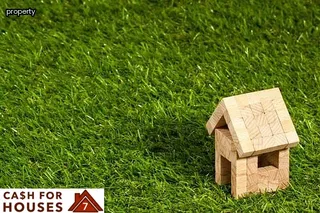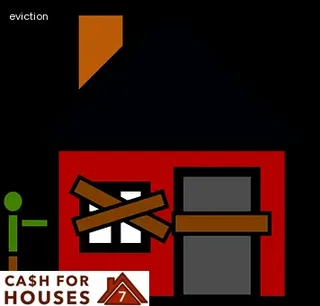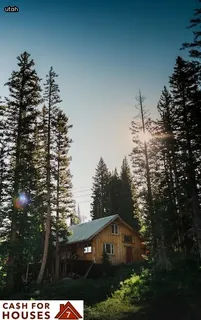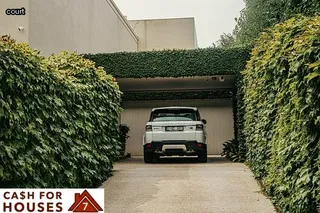In Utah, squatting can be a complex legal process with certain requirements that must be met in order to legally obtain a squatter’s rights. Squatters in Utah must first prove occupancy for a period of seven years or more before they can claim adverse possession and own the land.
This continuous occupancy must also be proven by showing that the squatter has paid all taxes on the property during this period. Additionally, when living in Utah, squatters must act as if they are the rightful owner of the land and make improvements that increase its value, such as building structures, maintaining gardens or adding landscaping features.
In order to qualify as a squatter in Utah and acquire ownership rights over time, individuals must also demonstrate that they have used the land openly and exclusively since their initial occupancy. Lastly, squatters in Utah should ensure that they do not enter an agreement with the true owner of the property regarding their use of it or else those rights may be nullified and lose protection from state laws protecting adverse possession.

Understanding how squatters gain rights through adverse possession can be a tricky process, but it is important for those living in Utah to know their rights. Squatters who occupy land or property without the legal owner's consent may gain certain rights to that land under certain circumstances.
Through adverse possession, squatters may take ownership of a property if they use it in an open and continuous manner for a period of time as defined by state law. In Utah, this period is seven years and requires that the claimant pays all taxes on the property during this time.
Additionally, the claimant must record a notice of their claim with the county recorder and provide written notice to the legal owner. When these requirements are met, the squatter has met their burden of proof and will receive title to the property.
It is essential that those living in Utah understand these laws so that they can protect their right to access housing or land in accordance with state law.
There are many questions that arise when it comes to understanding the color of title claims in Utah. What is a color of title claim? How does one go about getting a color of title claim in Utah? Does having a color of title guarantee ownership? While the answers can vary depending on individual circumstances, there are some general principles that apply to all individuals exploring squatter's rights and adverse possession in the state.
A color of title claim is an assertion by an individual that they have acquired ownership rights through possession over a period of time. This type of claim can be established by showing evidence such as tax records or other documents that prove ownership for at least five years.
In Utah, having a color of title does not guarantee ownership as it must first be approved by the court. Furthermore, if someone wants to establish a color of title claim but has not been in continuous possession for the required five year period, they may still qualify under certain conditions such as good faith ignorance or mineral rights claims.
Understanding these nuances is essential for people looking to explore their legal rights regarding squatter's laws and adverse possession in Utah.

Property owners in Utah should be aware of squatter's rights and adverse possession laws to protect their property from unwanted squatters. Understanding these laws is the first step to protecting your property from an unwanted squatter.
To begin with, a property owner should make sure there are no signs indicating that anyone is living on the property or has permission to do so; this includes visible structures, such as tents or makeshift dwellings. Additionally, it is important to document any evidence of trespassing on the property, such as garbage left behind or damage done to the land itself.
Property owners should also research the local laws surrounding adverse possession in order to understand when and how a squatter may be able to claim rights over their land. Finally, having an attorney familiar with these laws can help ensure that your rights as a property owner are protected if a squatter does appear on the premises.
By following these tips, property owners in Utah can protect themselves from illegal squatting on their land and preserve their legal rights.
The cost benefits of flipping houses in Utah may be appealing to those looking for a solid investment and the potential to turn a profit, but it is important to understand the legal landscape before getting started. For example, some Utah residents may not realize that there are specific laws regarding adverse possession, or “squatter’s rights,” that could affect their ability to buy or rent a property.
It is crucial to familiarize yourself with the nuances of these laws as they vary from state to state and can have an impact on the costs associated with flipping houses in Utah. To ensure you make an informed decision when exploring real estate investments, it is beneficial to research any related court cases or zoning regulations that may apply in your area.
Additionally, understanding tax implications can help you maximize profits when flipping housing in Utah by avoiding costly mistakes and ensuring you take advantage of any available deductions. With the right knowledge and resources at your fingertips, flipping houses in Utah could yield considerable financial rewards.

Finding affordable home and car insurance in Utah can be tricky. Prices vary widely based on a variety of factors, including the type of coverage you’re looking for and the company you go with.
It is important to shop around and compare different options to make sure you are getting the best deal possible. Some tips to keep in mind when looking for coverage include researching companies online, taking advantage of discounts or loyalty programs, bundling multiple policies together, raising your deductible, and asking about available payment plans.
Additionally, look into specialized coverage such as insurance for high-value homes or cars with modifications. Taking these steps can help you find a policy that meets your needs at an affordable rate.
In Utah, evictions are a legal process used to remove tenants from rental property when they have failed to abide by the terms of their lease. Depending on the circumstances and the severity of the violation, different eviction processes may be used.
In some cases, tenants may be given an opportunity to remedy the issue before being forced out; however, in other cases, landlords may file for an immediate eviction with the court. A landlord must first provide notice that outlines the reasons for eviction and allows a tenant time to respond.
If no resolution is reached or if a tenant fails to respond, then a formal complaint can be filed in court. The court will then hear both sides and make a decision on whether or not the eviction should proceed.
If it is determined that an eviction is warranted, then a writ of restitution will be issued which orders law enforcement officers to physically remove the tenant from the premises. In addition, tenants may also be liable for any back rent owed as well as damages caused during tenancy.
It is important that all parties involved understand their rights and obligations when navigating through Utah's eviction processes.

Exploring the legalities of evicting squatters from rental property in Utah can be a complex process. It’s important to understand the state laws pertaining to adverse possession and housing regulations, as well as how they may impact removal of tenants occupying a rental space without consent or payment.
These laws are particularly relevant when it comes to determining the rights of landlords and tenants in the event of an illegal residence on their property. In order to successfully navigate this situation, it is essential to have a comprehensive understanding of Utah’s legal framework and its implications for squatters.
Factors such as time limitations, financial compensation, and tenant defense strategies should all be taken into consideration when attempting to remove unwanted occupants from your rental property.
Living in Utah can be a challenge if you are trying to deal with unlawful tenants. Squatter's rights, or adverse possession, is an issue that many property owners have to deal with in Utah.
In order to properly handle an unlawful tenant situation, understanding the different housing laws and legal procedures available is important. While difficult at times, it is possible to protect your property from squatters and take back control of your home or business.
Knowing what steps to take when facing a squatter situation can help ensure that you are taking the right course of action legally. It is important to seek qualified legal advice when dealing with any type of housing law dispute related to squatter's rights in Utah.
From filing suit against a squatter for trespass or damages, to working out an agreement between both parties, there are various options available depending on the circumstance. Understanding the laws and regulations surrounding adverse possession and unlawful tenants in Utah can help make for a smoother process when attempting to reclaim your property from squatters.

Squatting is a form of housing where individuals take over an abandoned or unoccupied property and live on it as if they own it. In Utah, the law surrounding squatting rights is complex, so understanding the statutes and regulations before taking any action is important.
Property taxes must be kept up to date in order for a squatter to maintain their claim to a property. To pay property taxes, a squatter must first obtain proof of ownership from the county assessor's office, which can be done by providing an affidavit of adverse possession and an application for tax exemption.
The affidavit must include a detailed description of how long the squatter has occupied the property, why they believe they have exclusive control over it, and that no one else has made any claims to it. Once this paperwork is submitted and accepted, the squatter may begin paying taxes on the property in question.
It is also important to note that squatters are responsible for any costs related to clean-up or repairs on the property, as well as any legal fees incurred during the process. Therefore, understanding all applicable laws surrounding squatting rights in Utah prior to occupying an abandoned building is essential for potential squatters.
Utah's housing market is an important factor when exploring squatter's rights. The laws regarding adverse possession and other forms of squatting can differ from state to state, making it difficult for squatters to understand the complexities of their situation.
In Utah, local housing market conditions have a direct impact on the ability of squatters to take advantage of these rights. With the cost of living in Utah increasing at a rapid rate, many people are unable to find affordable housing, leaving them vulnerable to exploitation by landlords or property owners.
This has caused a rise in the number of people taking up residence in abandoned or unoccupied buildings, with some even forming groups and communities dedicated to squatting as a way of avoiding eviction notices. Furthermore, there are several legal implications that accompany squatting in Utah which must be taken into consideration before any action is taken; such as understanding how long someone must occupy the space before they can claim ownership and whether or not they can be held liable for any damages incurred while occupying the premises.
By looking at the impact of local housing market conditions on squatter's rights in Utah, it is possible to gain a better understanding of how these laws affect those without access to affordable and secure housing options.

Identifying a squatter on your property can be challenging, but understanding the laws of adverse possession and housing in Utah are essential if you want to protect your rights as a homeowner. It is important to know the signs of squatting in order to take appropriate action.
Common indicators of squatting include when someone enters land or a property without permission, sets up residence there and uses the resources, such as utilities or water, without authorization from the owner. Additionally, some squatters may attempt to gain access to the property by taking out a lease on it without the owner's knowledge or consent.
Other warning signs that a squatter has taken up residence could include changes in locks or security measures and personal items that were not previously on-site being present. It is important for homeowners to be aware of these signs and take steps to protect their rights and property in accordance with Utah law.
In Utah, squatter's rights are established through a legal process known as adverse possession. This process allows someone to claim the title of a property if they have been occupying and using it for a certain period of time without the owner's permission.
Establishing an adverse possession claim in Utah requires meeting various state regulations in order to gain legal ownership. These regulations include demonstrating continuous, exclusive occupation of the property for seven years or more and paying taxes on the property during this time.
Additionally, intending to possess the land must be proven via acts such as building structures or making improvements to the property. Furthermore, owners must be notified of the adverse possession claim before it can be finalized in court.
It is important to understand these regulations when exploring squatter's rights in Utah so that individuals can make sure their claims are legitimate and valid.

In Utah, the distinction between trespasser and squatter can be difficult to understand. To begin, a trespasser is someone who enters a property without permission from the owner and stays on the property for an indefinite period of time.
While a squatter is someone who has been living upon another's property for a certain period of time with or without their knowledge or consent. Squatters have certain rights in Utah that allow them to remain on the property as long as they meet particular criteria such as paying taxes and making improvements to the land.
However, if these criteria are not met, then they may be subject to eviction or other legal action. Understanding the difference between trespassers and squatters in Utah can help individuals know when they are legally allowed to stay on a property and when they may be considered trespassers.
Additionally, understanding adverse possession laws in Utah can provide guidance on how best to acquire property through squatting rather than through traditional methods like purchasing it outright.
The process of evicting a squatter in Utah can be complicated and time consuming. An eviction requires filing a complaint with the court and having the squatter served with the papers.
If the squatter does not leave within five days of receiving service, then an eviction hearing will be held. The landlord must prove ownership of the property and that they have given the squatter proper notice to vacate.
In some cases, law enforcement may need to be involved if the squatter is unwilling or unable to leave. It is important to note that adverse possession laws in Utah do not protect squatters from eviction as long as they remain on someone else’s property without permission.
Owners should also contact a qualified attorney who is knowledgeable about Utah's housing laws before proceeding with an eviction.

Adverse possession is a form of property acquisition in which a person takes possession of another's land through open, notorious and continuous occupation over a period of time. In Utah, the shortest amount of time that someone must occupy land to gain rights of adverse possession is seven years.
This seven-year period must be uninterrupted, visible, hostile and exclusive for the squatter to claim title by adverse possession. It is important to note that this does not mean that the squatter has full ownership rights after seven years; rather, it grants them certain occupancy rights.
Additionally, depending on the specific circumstances, adverse possession may also entitle the squatter to receive compensation from the owner for improvements made to the property during their tenure. To gain more insight into squatters' rights in Utah and understand how adverse possession works under housing laws in the state, it is important to consult an experienced attorney or real estate professional.
Adverse possession is a unique legal concept in Utah that allows people who have lived on a property without the owner's permission for a certain amount of time to gain lawful ownership of it. In order to determine how long adverse possession must be in order to acquire title in Utah, it is important to understand the details and restrictions regarding this process.
According to Utah law, an individual must have been occupying the land for at least seven years with no interruption. This means that for seven years or more, the person must have been living on the property openly and notoriously, meaning that anyone could see them occupying it.
Furthermore, they must have had exclusive possession of the land and paid taxes on it if applicable. Lastly, they must prove that their possession was hostile to the original owner by showing clear evidence that they did not have permission from them.
If all of these requirements are met, then an individual may be able to successfully claim adverse possession rights in Utah after seven years of continuous occupation without interruption.
Adverse possession, also known as adverse use, is a legal concept that can give squatters rights to property in Utah. Adverse possession is a centuries-old law allowing someone to acquire title to another's real estate if they possess the land and meet certain conditions for a specified amount of time.
In Utah, adverse possession laws are established by the state legislature and require someone to occupy the land without permission from the owner for seven years or more before they can gain title to it. During this time, there must be an open, notorious and continuous use of the property as if it were owned by them.
The intention behind such laws is to encourage owners of real estate to pay attention to their land and take action against trespassers who may have been there for many years. An adverse user may eventually gain legal ownership of a piece of property through payment of taxes and other necessary steps, even though they never had permission from the original owner.